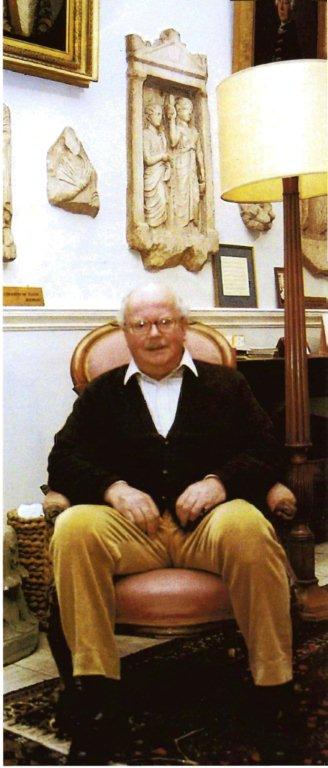 Bribery and Corruption of public officials and priests facilitated Elgin’s theft of grave markers and other sacrilegious acts.
Bribery and Corruption of public officials and priests facilitated Elgin’s theft of grave markers and other sacrilegious acts.
The “Report From The Select Committee on The Earl of Elgin’s Collection of Sculptured Marbles &c.” contains various contradictory sets of accounts from Elgin purporting to be his expenses for excavating and transporting the hundreds, even thousands of pieces of structural marble, tomb headstones, altars, burial urns, medals etc.
Elgin sought repayment for this and within his bill to Parliament there is reference to amounts of cash being paid to public officials. In one case he claimed 21,902 Piastres for “Presents found necessary for the local authorities, in Athens alone” LINK
Though Hunt in evidence to the Select Committee denied any knowledge of paying money to officials (he said he only gave them presents) he did admit that presents were given to the Voivode at the time the firman was presented to him. Hunt in his evidence to the committee was unable to be sufficiently precise as to estimate the amount “incurred in the way of bribes, either in obtaining the fermaun at Constantinople, or on acting upon it at Athens“. Rather tellingly when Hunt was asked if the firman specifically gave him authority to remove sculptures from the walls of the temples he replied: “That was the interpretation that the Voivode of Athens was induced to allow it to bear“.
Hunt was responsible for most of the ‘fixing’ by inducement of local officials in Athens and while much is attributed to Elgin personally that is not the case, as quite simply he was not in Athens until most of the damage had been done. The Right Honourable Lord Broughton in his book “Travels in Albania” published in 1858 attributes most of the removal of holy relics from Athens to Elgin and states: “The sun-dial and the Gymnasiarch’s chair were taken by Lord Elgin from the court of the Catholicon,” however that is contradicted by Hunt in his letters where he states: “My friendship with the Bishop of Athens, gained me permission to examine the interior of all the Churches and Convents in Athens. This search furnished many valuable bas-reliefs, inscriptions, ancient dials, a Gymnasiarch’s chair in marble,“ etc.
Whatever the identity of the actual briber the responsibility for all of their actions must be borne by Elgin. He and/or members of his party admitted to bribing Turkish officials in the occupied city of Athens and other occupied territories to allow the unauthorised or illegal removal of all manner of items including sacred items such as altars, tomb headstones (Hunt described as Cippi), and funereal urns. In order to do the latter it would have been necessary to dig up the graves of the dead. There is no other way to describe it but grave robbery facilitated by bribery and corruption.
Respect for the dead and respect for one’s ancestors is a universal trait of all civilised people. One can understand how the current Earl of Elgin would defend his infamous ancestor, but it is sad to note that he thinks fit to do so in interviews given to the press whilst posing for photographs in his study at Broomhall where the walls are lined with ancient Greek stele or grave markers. Memorial stones that once paid respect to Athenian and other Greek people acting as decorations. The kindest interpretation one could place on these actions would be to attribute them to ignorance. Perhaps the Earl simply does not understand the offence he causes to most right-minded people, and particularly those descendants of the dead, whose sacred memorial stones–in some instances admittedly obtained by bribing priests–decorate his walls.
